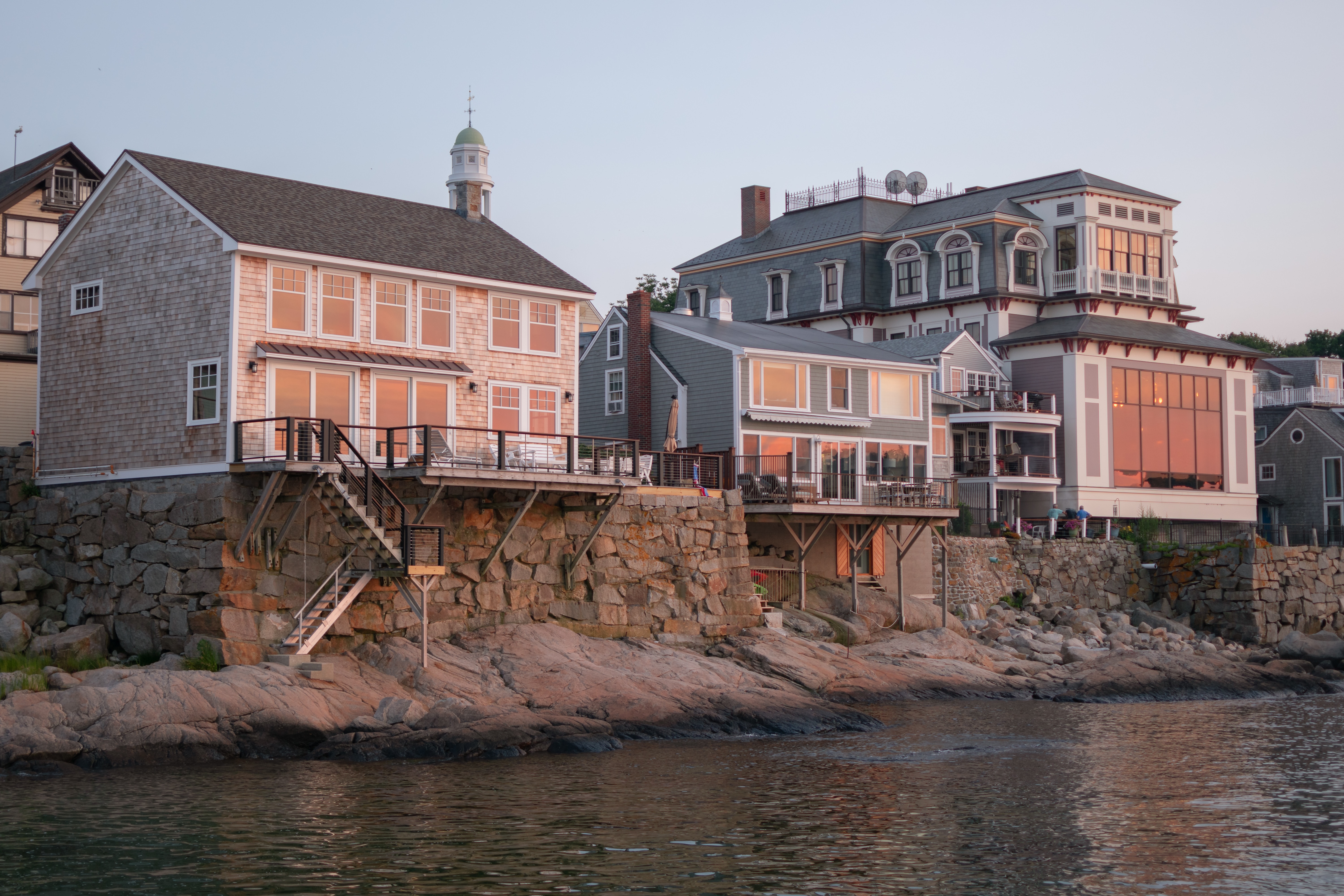Having an apartment or house by the sea is one of the dreams of many people, because who would not enjoy spectacular sunrises and sunsets? Or walks through the sand, games with children, fishing time, sunning and many other pleasant moments that life by the sea offers us? But one thing is to enjoy all this when you are only visiting and a different one is to enjoy the same scenario but with the responsibility that comes with the care and maintenance of this property, so as to avoid the maximum deterioration before exposure to environmental agents ambient.
We offer you some tips that will help you take maximum care of your property in front of the sea and you can enjoy this little piece of earthly paradise without major complications.
Take note!
Ventilation: Adequate ventilation prevents moisture deterioration. Totally avoid the use of heavy curtains on the windows. You can use blinds in conditioned environments. The use of air conditioning in the bedrooms is recommended to be able to have a rest with adequate comfort temperature. While in the common areas, which are more traffic and where cold areas tend to be lost, it is quite useful to use fans to help the good air circulation. If the house will remain closed for a time after vacation, you can avoid moisture odors, leaving glasses with white vinegar or baking soda in corners of the rooms.
The color of the facade: The option of light colors is always the most successful, since in addition to offering a refreshing visual perspective, they are colors that deteriorate less when exposed to the sun.
Protecting from saltpeter: Beach furniture should be made of materials that do not oxidize since the sea breeze is loaded with saltpeter, which causes the oxidation of metals, so, care must be taken with furniture and accessories, even cooking, carefully choosing them and verifying that they are stainless. Washing of outdoor furniture should be done daily.
Electrical installations: You have to be very careful in this particular point, since it is essential to avoid accidents due to oxidation and deterioration. Among the recommendations is the use of plugs for plugs.
Furniture textiles: when it comes to exteriors, it is recommended that it be made of synthetic fiber.
As for the floors: ceramic tiles are an excellent option since their maintenance is very simple and fast. If it is a wooden floor, it is necessary that it has the proper sealant treatment.
Covered furniture: If the house is going to be closed for long periods, it is advisable to cover the furniture with a blanket to avoid exposure to wear agents.
If you want to expand our list of recommendations then write to us, it will be a pleasure to read your suggestions.
Tener un apartamento o casa a la orilla del mar es uno de los sueños de muchas personas, porque ¿Quién no disfrutaría de espectaculares salidas y puestas de sol? ¿O de paseos por la arena, juegos con los niños, tiempo de pesca, asolearse y otros tantos momentos placenteros que la vida junto al mar nos ofrece? Pero una cosa es disfrutar de todo esto cuando sólo andas de visita y otra diferente es disfrutar el mismo escenario pero con la responsabilidad que conlleva el cuidado y mantenimiento de esta propiedad, para que evitar al máximo el deterioro ante la exposición a los agentes del medio ambiente.
Te ofrecemos algunos consejos que te ayudarán a cuidar al máximo tu propiedad frente al mar y puedas disfrutar sin mayores complicaciones de ese pedacito de paraíso terrenal.
¡Toma nota!
La ventilación: Una adecuada ventilación previene el deterioro por humedad. Evite totalmente el uso de cortinas pesadas en las ventanas. Puede usar persianas en ambientes acondicionados. Se recomienda el uso de aire acondicionado en los dormitorios para poder tener un descanso con temperatura de confort adecuada. Mientras que en las áreas comunes, que son de mayor tráfico y donde se tiende a perder las zonas frías, resulta bastante útil el uso de ventiladores para ayudar a la buena circulación del aire. Si la casa permanecerá cerrada por un tiempo posterior a vacaciones, puede evitar los olores de humedad, dejando en rincones de las habitaciones, vasos con vinagre blanco o bicarbonato de sodio.
El color de la fachada: La opción de colores claros siempre es la más acertada, ya que además de ofrecer una perspectiva visual refrescante, son colores que se deterioran menos ante la exposición al sol.
Protegiendo del salitre: Los muebles de playa deben ser de materiales que no se oxiden ya que la brisa del mar está cargada de salitre, que provoca la oxidación de los metales, así que, se debe tener cuidado con los muebles y accesorios, hasta los de cocina, escogiendo con cuidado los mismos y verificando que sean inoxidables. El lavado del mobiliario exterior debería hacerse a diario.
Las instalaciones eléctricas: Hay que ser muy cuidadoso en este punto particular, ya que es imprescindible evitar accidentes por oxidación y deterioro de las mismas. Entre las recomendaciones está el uso de cobertores para enchufes.
Los textiles del mobiliario: cuando se trata de exteriores, lo recomendable es que sea de fibra sintética.
En cuanto a los pisos: las baldosas de cerámica son una excelente opción ya que su mantenimiento es muy sencillo y rápido. Si se trata de piso de madera, es necesario que esta tenga el adecuado tratamiento sellante.
Muebles cubiertos: Si la casa va a estar cerrada por largos periodos, es recomendable tapar con una manta el mobiliario para evitar su exposición a los agentes desgastantes.
Si quieres ampliar nuestra lista de recomendaciones entonces escríbenos, será un placer leer tus sugerencias.


Leave a Reply